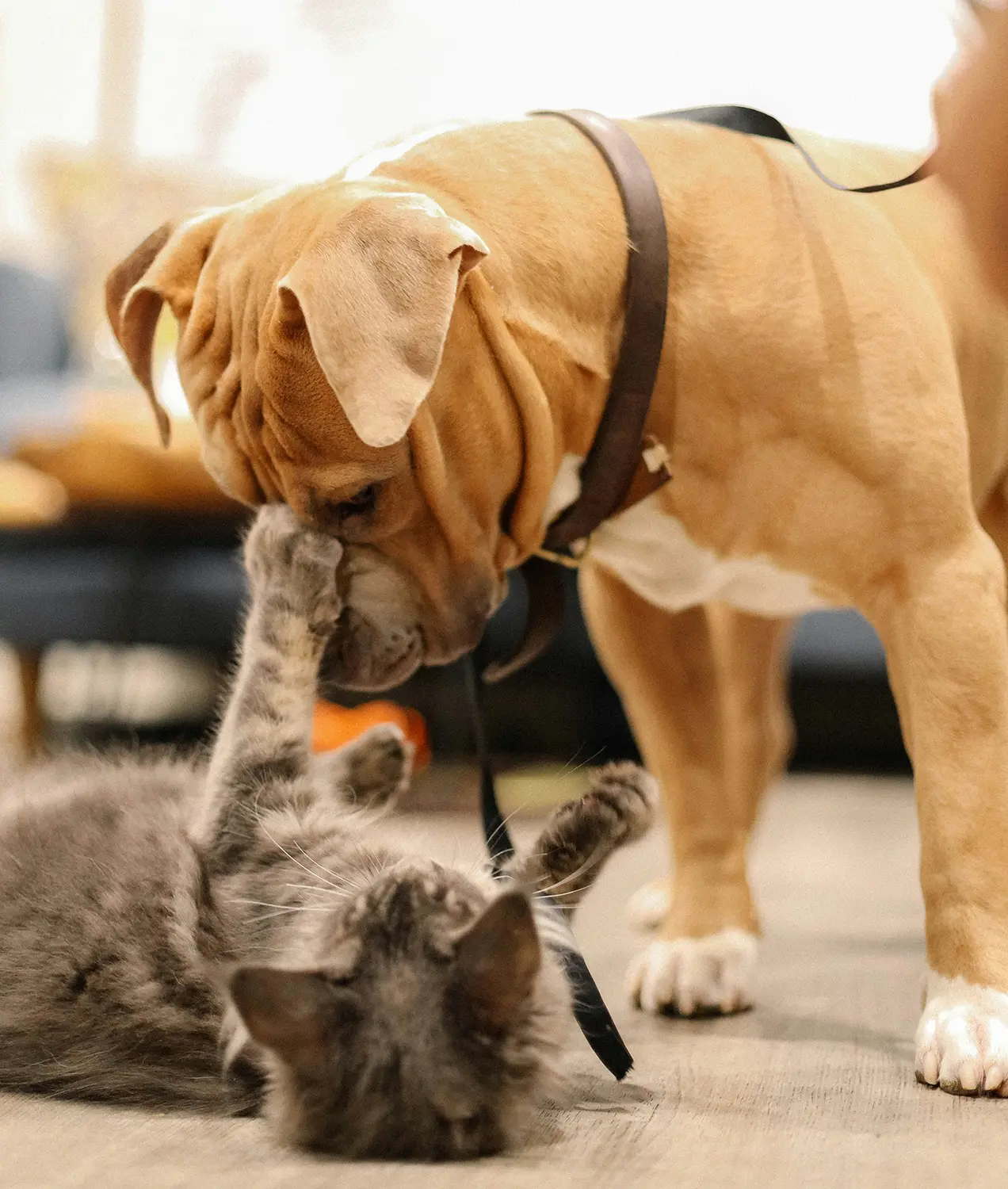
Inflammatory Bowel Disease (IBD) is a chronic condition that affects the gastrointestinal (GI) tract of both dogs and cats. Characterized by persistent inflammation, IBD can cause a range of uncomfortable and debilitating symptoms. Understanding this condition, its causes, diagnostic methods, and management strategies is crucial for pet owners to ensure their furry companions lead comfortable and healthy lives.
Note that IBD can be confused with irritable bowel syndrome (IBS). IBS is actually a separate condition that has a different treatment plan.
Understanding Inflammatory Bowel Disease
What is IBD?
Inflammatory Bowel Disease is not a single disease but a group of disorders characterized by chronic inflammation of the GI tract. In dogs and cats, this inflammation can affect different parts of the GI tract, including the stomach, small intestine, and large intestine. The inflammation disrupts the normal absorption of nutrients, leading to a variety of gastrointestinal symptoms.
Causes of IBD
The exact cause of IBD is not well understood, but it is believed to result from an abnormal immune response to intestinal bacteria, food antigens, or other substances in the GI tract. Several factors may contribute to this abnormal immune response, including:
- Genetics: Certain breeds are more prone to developing IBD, suggesting a genetic predisposition.
- Diet: Food allergies or intolerances can trigger IBD. Proteins, food additives, and other ingredients may provoke an immune response.
- Microbial Imbalance: An imbalance in the normal gut flora may contribute to the development of IBD.
- Immune System Dysregulation: An overactive immune response to normal intestinal contents may lead to chronic inflammation.
Breeds at Risk
While IBD can affect any dog or cat, some breeds are more susceptible. In dogs, breeds such as German Shepherds, Boxers, and Basenjis are at higher risk. Cats, particularly Siamese and other purebred cats, may also have a higher predisposition to IBD.
Symptoms of IBD
The symptoms of IBD in dogs and cats can vary depending on the severity and location of the inflammation. Common signs include:
Dogs
- Chronic Diarrhea: Often intermittent and may contain mucus or blood.
- Vomiting: Frequent vomiting is a common symptom, particularly if the stomach is involved.
- Weight Loss: Despite a normal or increased appetite, dogs may lose weight.
- Abdominal Pain: Dogs may show signs of discomfort, such as whining or adopting a hunched posture.
- Lethargy: A general decrease in activity levels and enthusiasm.
Cats
- Chronic Diarrhea: Similar to dogs, cats may have intermittent diarrhea with mucus or blood.
- Vomiting: Frequent vomiting, often with hairballs or food.
- Weight Loss: Weight loss despite a normal appetite is a key indicator.
- Changes in Appetite: Some cats may have an increased or decreased appetite.
- Poor Coat Condition: Due to malabsorption of nutrients, the coat may appear dull and unkempt.
Diagnosing IBD
Diagnosing IBD involves a combination of clinical evaluation, laboratory tests, imaging, and sometimes biopsy.
Clinical Evaluation
As your veterinarian we will begin with a thorough history and physical examination. We will inquire about the duration and frequency of symptoms, diet, and any previous treatments.
Laboratory Tests
Blood tests can help rule out other conditions and assess the overall health of the pet. Fecal examinations are done to exclude parasitic infections. Elevated white blood cell counts or other abnormalities can suggest inflammation.
Imaging
Imaging techniques like ultrasound or X-rays can provide visual evidence of GI tract inflammation and help rule out other causes of symptoms, such as tumors or obstructions.
Biopsy
A definitive diagnosis of IBD often requires a biopsy. Endoscopy or surgery can obtain tissue samples from the GI tract. The samples are examined histologically to identify the type and extent of inflammation.
Managing IBD
Managing IBD in dogs and cats typically involves a combination of dietary changes, medications, and supportive care. The goal is to reduce inflammation, manage symptoms, and improve quality of life.
Dietary Management
Dietary changes are a cornerstone of IBD management. Options include:
- Hypoallergenic Diets: These diets use novel protein sources or hydrolyzed proteins to minimize immune reactions.
- High-Fiber Diets: For pets with large intestine involvement, high-fiber diets can help manage diarrhea.
- Prescription Diets: Specialized veterinary diets formulated for GI health can be beneficial.
Medications
Medications are often needed to control inflammation and manage symptoms:
- Anti-inflammatory Drugs: Corticosteroids, such as prednisone, are commonly used to reduce inflammation.
- Immunosuppressive Drugs: In severe cases, drugs like azathioprine or cyclosporine may be prescribed.
- Antibiotics: Metronidazole or tylosin can help control bacterial overgrowth and secondary infections.
- Probiotics: Supplementing with probiotics can help restore healthy gut flora.
Supportive Care
Supportive care is essential to maintain the pet’s overall health:
- Fluid Therapy: Pets with severe diarrhea or vomiting may need fluid therapy to prevent dehydration.
- Nutritional Supplements: Supplements such as omega-3 fatty acids can help reduce inflammation and support gut health.
Monitoring and Follow-Up
Regular follow-up appointments with us are crucial to monitor your pet’s response to treatment and make any necessary adjustments. Blood tests, weight checks, and clinical evaluations help ensure the management plan is effective.
Conclusion
Inflammatory Bowel Disease in dogs and cats is a complex condition that requires a comprehensive approach to diagnosis and management. By understanding the causes, recognizing the symptoms, and working closely with us as your veterinarian, you as the pet owners can effectively manage IBD and improve your pets’ quality of life. With proper care and treatment, many pets with IBD can lead happy, comfortable lives.










Write a comment
What is your overall rating?